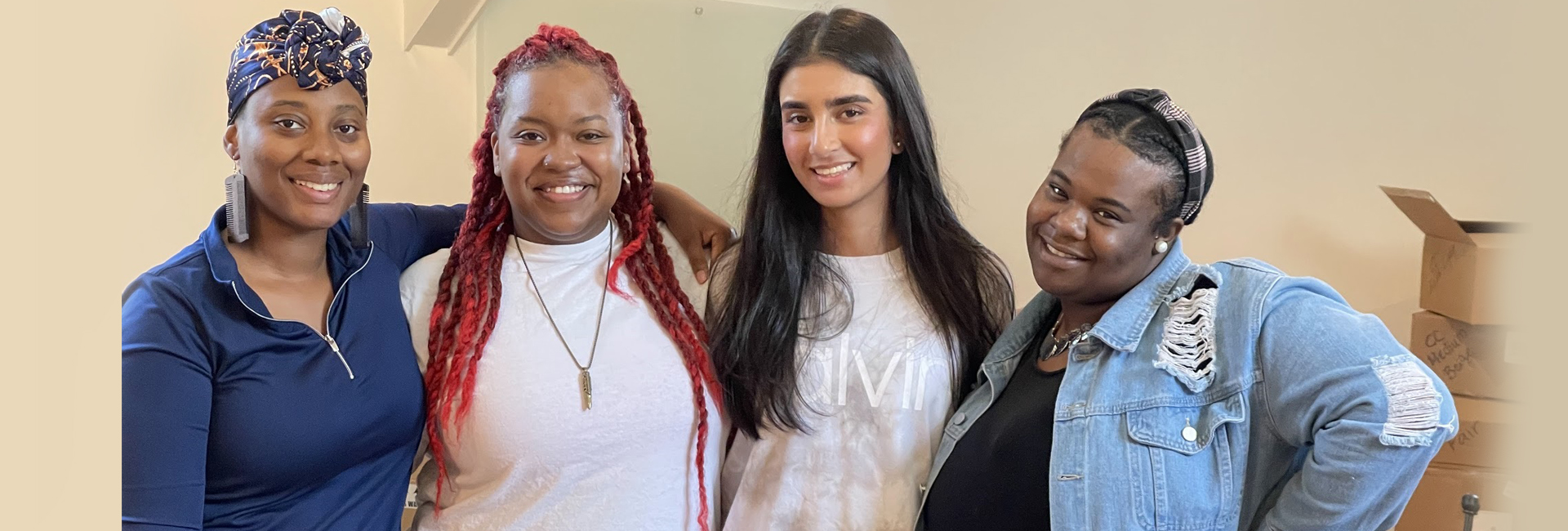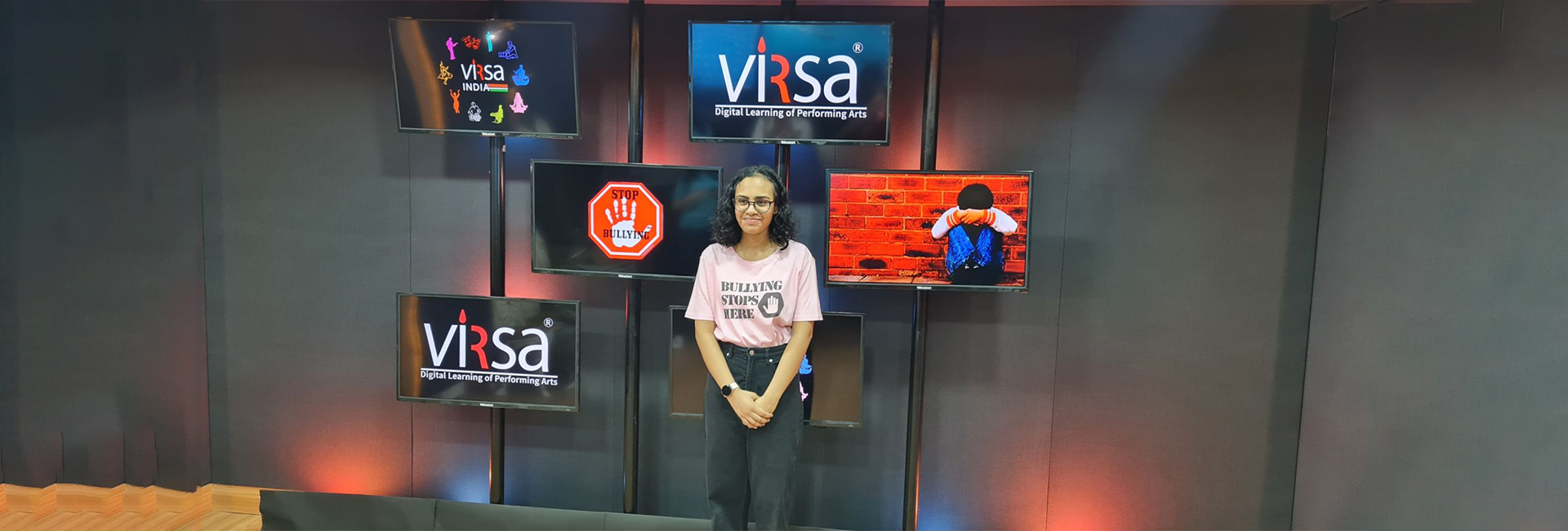(August 2, 2023) She remembers sticking her head out of the school bus window on her way home, to catch a glimpse of the HCG in Bengaluru, the oncology hospital that came up with cyberknife technology and hormone therapy to cure cancer. Such was Swetha Kannan’s passion for cancer research, that in Grade 7, she decided to become an oncologist. “The disease was so mysterious; there’s so much you don’t know about it. I was curious as to why we don’t have a definitive cure for cancer,” Swetha tells Global Indian. But little did Swetha know that a few years down the line, the deadly disease would come knocking on her door. Her world came crashing down at the beginning of 2018 when her grandmom was diagnosed with uterine cancer. Being her primary caregiver, Swetha understood the importance of psychological well-being in cancer patients. This prompted her to start the Lalitha Foundation (named after her grandmom) in 2019, dedicated to the betterment of the lives of cancer and post-sepsis patients. The initiative, which has positively impacted hundreds, won her the Diana Award 2023. “I thought I was daydreaming. It was a pleasant surprise,” she smiles.

Swetha Kannan is the founder of The Lalitha Foundation
A personal experience led to her purpose
Having personal experience with mental health struggles, Swetha recognises the lack of awareness and the struggle of opening up, especially in India. “I have anxiety and panic disorder. For me, it was living through these experiences that taught me how important it is for you and the people around you to know what’s happening to you, and know that there is support,” says the changemaker, who spent three months with her grandmom while the later went through umpteen tests and a surgery.
Those months were taxing not just physically but mentally for both Swetha and her grandmom. “Part of my panic and anxiety disorder arises from the fact that my body went through so much physically and mentally in such a framed period. I was taught to give her blood thinning injections after the surgery, and I thought I was infecting my grandmother and it’s not okay. The worst part was that we didn’t know what stage the tumour was.” Understanding the problem, she founded the Lalitha Foundation with the mission to create awareness around both cancer and mental health widespread across communities in India, especially among underprivileged people. “The second was to find ways to make access to care more equitable.”
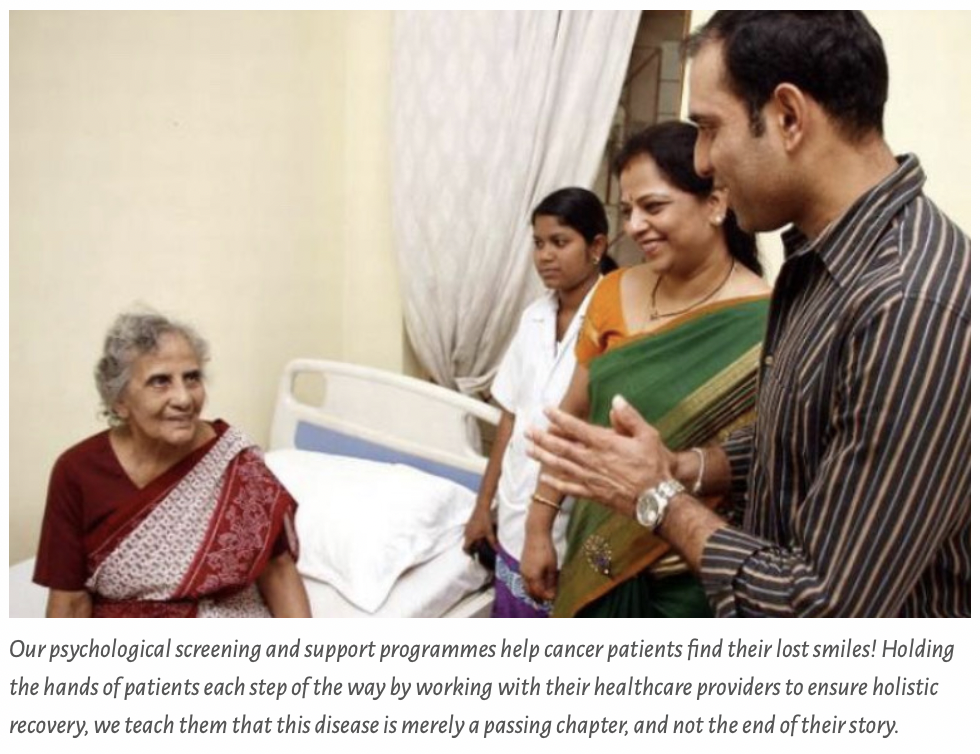

She realised that one essentially needs to be in an urban setup to either get cancer treatment or be screened for mental health. “The mortality rate of cancer in rural India is double that of rural India, even though the incidents of cancer in urban India are much higher. The statistics rang alarming bells because people don’t choose what community or social status they are born into. Having someone have to fight so much harder for something so basic as healthcare based on factors that they didn’t even choose for seemed unfair,” adds Swetha. This nudged her to make awareness reach places that they needed to. “The mission was to let people know that having cancer or mental illness is not the end of the world. You need to know your symptoms and take action for your good.”
Swetha, who a few months after her grandmom’s surgery interned at HCG Bengaluru, came across patients from rural areas who were at the mercy of doctors and had no idea about the right treatment or awareness about the disease. “Simple things like awareness about the disease can go massive miles in improving or stabilising one’s psychological wellbeing in the long term. You know what’s happening to you and you feel in control.”
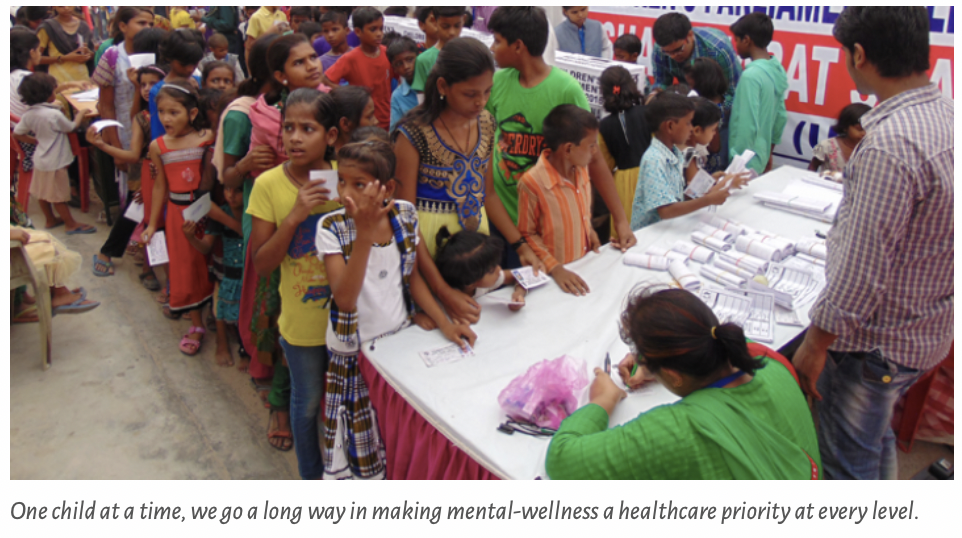

How a teenager transformed lives
In 2019, Swetha was elected to be a fellow of the Clinton Global Initiative in LA. Only nineteen at the time, she began the Lalitha Foundation, to create awareness on mental health and cancer. She began by reaching out to medical students and doctors and using YouTube and WhatsApp to spread the word. “Within a few weeks, I had 300-400 sign-ups,” she smiles. The next step was to impart training to the volunteers. Her mentor at The Clinton Foundation suggested creating a Google classroom with training materials including videos, podcasts, and reading. There were assignments to gauge the understanding of the issue on the part of the volunteer. “I can’t have a volunteer talking to a patient who has no idea what he’s saying.” Later, the very few specialists in mental health like therapists and psychiatrists were recruited to train generic healthcare professionals like nurses, and general practitioners on the basics. “As volunteers, their job is to educate patients and tell them to access support, but they can’t mediate support,” says Swetha who has volunteers in Karnataka, Tamil Nadu, Delhi, Punjab, and West Bengal.
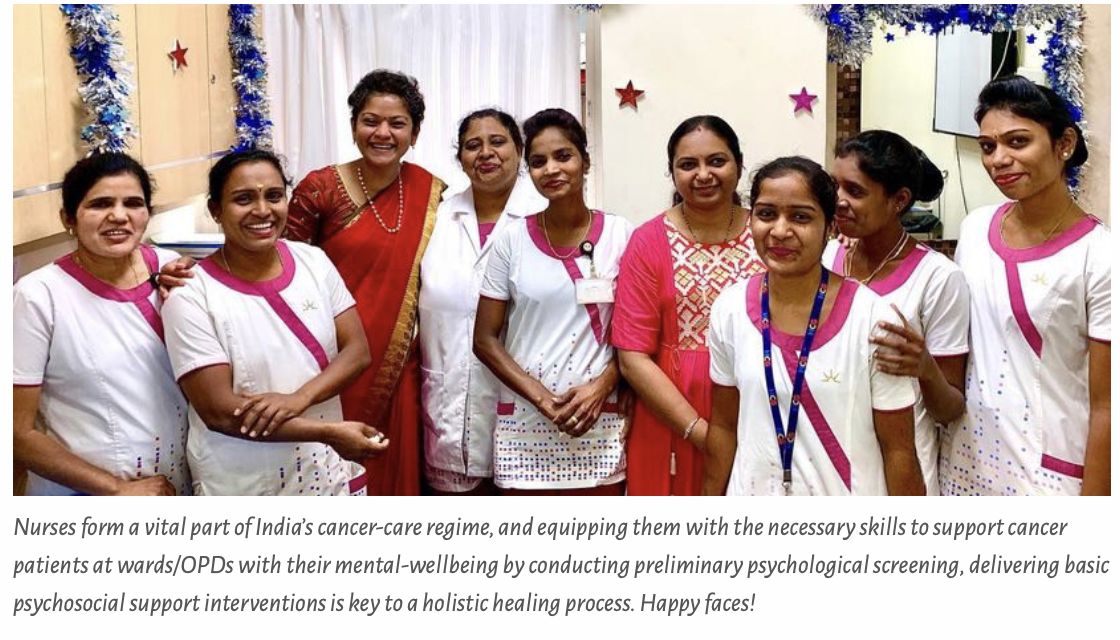

Changing lives
It’s been over three years since the Lalitha Foundation came into existence, and the nonprofit has created awareness on mental health and cancer, trained volunteers, done in-person programs with the support of the Clinton Foundation, and raise funds to provide free psychotherapies. “More than the impact in the commercial sense, I have seen families being more supportive and patients talking openly about mental health to their oncologists. That’s the kind of impact we have made. We have created shared and safe places for people to open up. It’s about telling people that your health is not a one-dimensional entity,” says the 24-year-old changemaker who had a profound conversation with Sri Sri Ravi Sankar. “He said, ‘A strong mind can withstand even the weakest of body but a weak body can’t withstand even a very strong body.’ And I couldn’t agree more.”
The Lalitha Foundation which currently operates in India is planning to expand in Africa, with a focus on countries like Uganda and Tanzania. “The stigma for mental health in India stems from different socio-cultural aspects than one in Africa. So, currently, we are in the process of understanding what the mental health situation in Africa is like,” adds Swetha, who is pursuing a PhD at University of Cambridge. Ask her about her thesis, and pat comes the reply, “My project is looking at tumour immune interactions in Burkitt’s lymphoma. It has two subtypes – Endemic which is more common in Africa. It’s a paediatric cancer and kids with this cancer almost always die as they don’t have access to intensive care. While sporadic is more common in kids in developed countries like Europe and the prognosis is okay but kids who relapse almost always die. It was only last year that I realised that paediatric cancers are extremely under-researched and also underfunded for research.” Before her Ph.D., she did her BSc (Hons) in Immunology from the University of Edinburgh and her MPhil in Medical Sciences from the University of Cambridge.
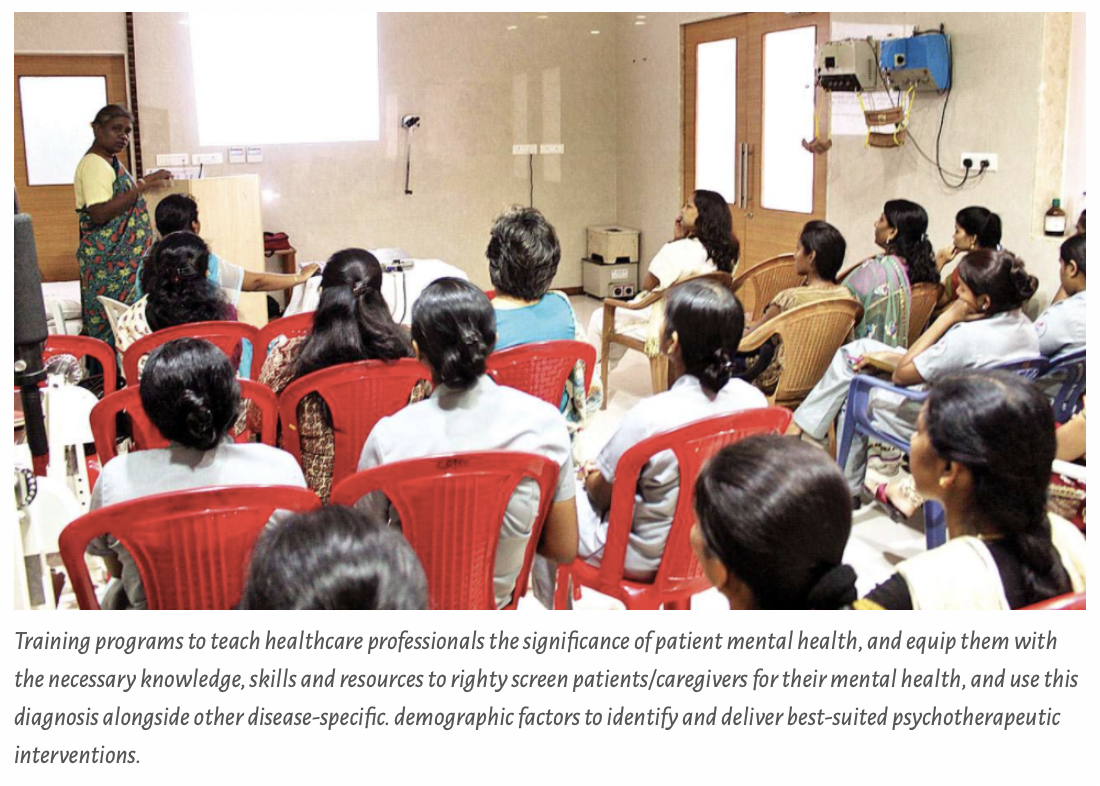

Dealing with her grandmom’s cancer to starting The Lalitha Foundation, Swetha calls it a transformative journey. “As a 19-year-old when my grandmom was diagnosed, I used to think Why Me? I was disconnected from reality as I was working like a machine and wasn’t processing anything on an emotional level. In retrospect, it was the most transformative part of my life. If not for this, forget Lalitha Foundation, I wouldn’t have grown as a person,” she says, who has now translated her passion into purpose in the field of oncology.
The girl, who sings and writes poetry to unwind, says that her biggest learning in the journey has been to trust the process and let go. “The things that don’t work are just distracting you from your bigger goal and the role you have to play in this world.”
The Lalitha Foundation gave her a purpose, and Swetha is on a mission to transform the lives of cancer patients and their caregivers. “We teach people to love themselves and be kinder to themselves. You don’t fight cancer but you heal from it, and you can only do it with love and kindness along with the treatment. Things might not be okay right now but some day things will be better,” she signs off.



